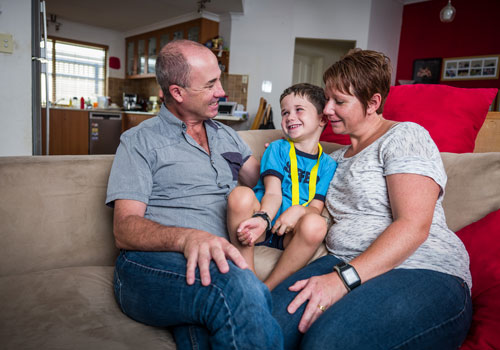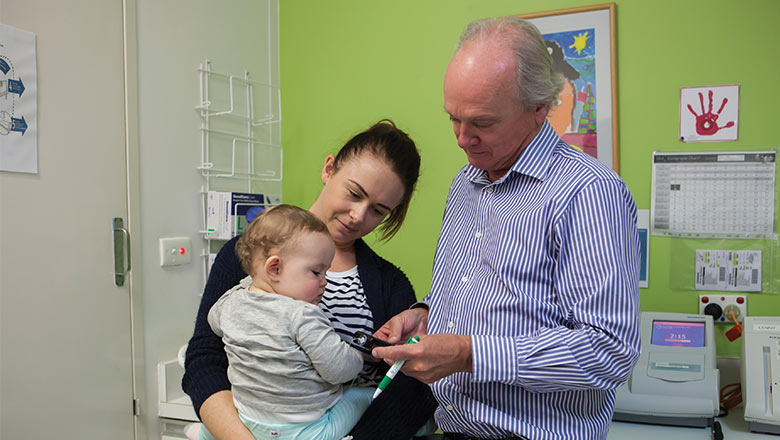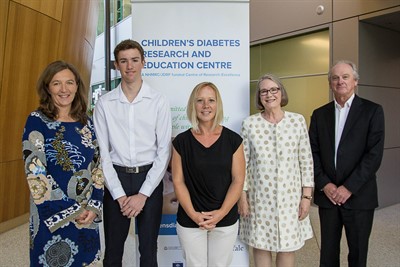Search

Every decision a child with type 1 diabetes makes can impact on their blood glucose levels.

When Jodie and Brad Scott welcomed their fourth child Heath into the world, they were prepared for the many sleepless nights that come with caring for newborns.

Diabetes research got a huge boost when the WA Children’s Diabetes Research and Education Centre for Research Excellence opened late last year.

Launch of the WA Children's Diabetes Research and Education Centre for Research Excellence (CRE) on the eve of World Diabetes Day.
New research from Perth's Telethon Institute for Child Health Research has revealed an unexpected pattern in the rate and incidence of type 1 diabetes
This study examined illness-related change in intelligence quotient (IQ) in a cohort of youth with type 1 diabetes studied prospectively from disease onset...
Impact of an acute bout of hyperglycaemia on nitric oxide (NO)-mediated microvascular function in the skin of adolescents with type 1 diabetes
In adolescents with type 1 diabetes, the group with the highest tertile of albumin excretion showed more evidence of early renal and CV disease
Higher urinary albumin excretion, even within the normal range, is associated with early atherosclerosis
Our aim was to examine the school performance of children with type 1 diabetes in comparison to their peers, exploring changes over time, and the impact of...
